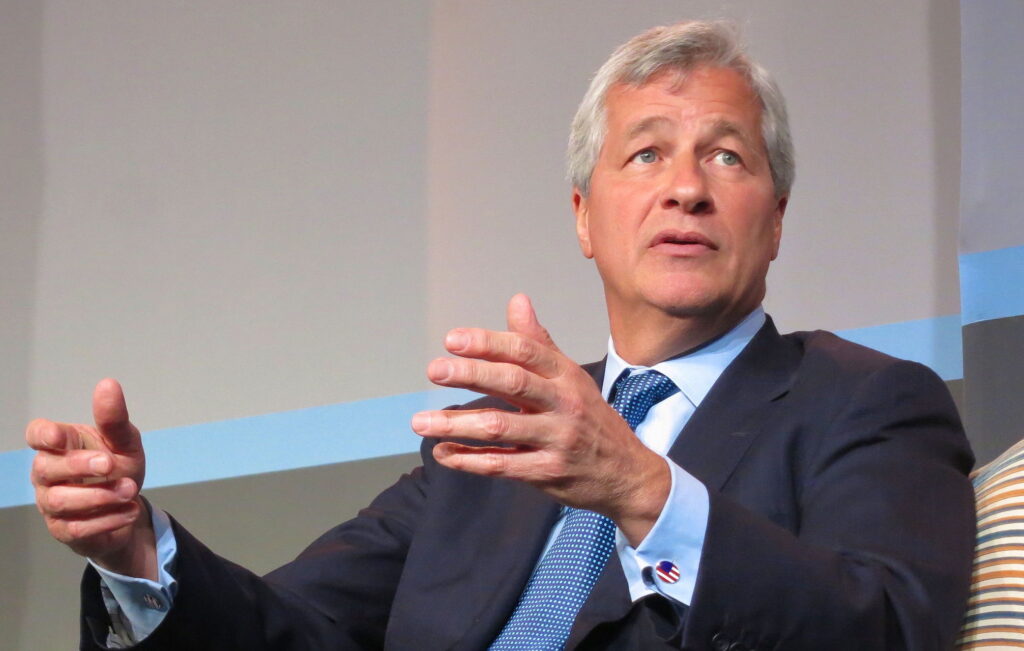This past Tuesday, JPMorgan Chase CEO Jamie Dimon released his annual letter to shareholders. Dimon’s letter to shareholders has been gaining more attention in recent years (the last decade arguably), and I believe it’ll eventually replace Warren Buffett’s letter as the most important and highly anticipated annual letter in the investing and financial world.
Recent Banking Turmoil
The timing of Dimon’s letter comes on the heels of what has been a tumultuous month of March for the banks – specifically the regionals.
Silicon Valley Bank (SVB) collapsed in 48 hours and First Republic was handed a $30 billion lifeline by the “big boys.” JPMorgan Chase, Bank of America, Citigroup and Wells Fargo each threw in $5 billion, nbd, Goldman Sachs and Morgan Stanley came with $2.5 billion and PNC, BNY Mellon, Truist, U.S. Bankcorp and State Street rounded out the party with a cool $1 billion each of their own.
Credit Suisse also faced threat of insolvency and got snatched up by UBS for $3 billion. This isn’t a done deal yet but according to AP News, UBS confident about Credit Suisse deal despite ‘huge’ risk.
This is not the first (and likely not the last) time that Jamie Dimon, under the JPMorgan Chase banner, has led other big banks to provide capital to distressed banks.
Setting the Scene
First, let’s look at the history of Warren Buffett’s annual letter to shareholders. For more than 60 years, Buffett has written an annual letter to Berkshire Hathaway partners and shareholders, providing insight into the company’s financial performance, investment strategies, and overall philosophy.
The letter has become a highly anticipated event for investors, analysts and CNBC/Bloomberg pundits alike, with many eagerly awaiting its release. Over the years, Buffett’s letter has gone beyond the financial world and has become a cultural touchstone, with his folksy writing style and witty anecdotes earning him a legion of loyal followers.
New Kid on the Block
Dimon has been writing the JPMorgan Chase letter to shareholders since 2006, and they have become increasingly popular and influential over time. Like Buffett, Dimon’s letters offer insight into the company’s financial performance and investment strategies, but they also address broader economic and political issues, making them of interest to a wider audience.
What Makes Dimon’s Letter So Compelling?
For one thing, he’s widely regarded as one of the most respected and successful CEOs in the banking industry, and his insights carry a lot of weight with investors and analysts. In addition, Dimon’s letters are often more candid and direct than Buffett’s, tackling controversial topics such as income inequality, healthcare reform, and corporate responsibility. This makes Dimon’s letters not only informative but also thought-provoking and engaging.
Another factor contributing to Dimon’s growing influence is the changing nature of the finance and banking industry itself. In recent years, JPMorgan has become one of the world’s largest and most powerful banks, with a global presence and a broad range of financial services. This gives Dimon a unique perspective on the state of the global economy and the challenges facing the financial industry, making his letters especially relevant, informative and engaging.
A Signal for the Market
So, what are the potential market implications of Dimon’s letter eventually replacing Buffett’s as the most important annual letter? For one thing, it could signal a shift in the balance of power within the financial industry, with JPMorgan Chase taking on an even more prominent role than it does today. Hard to imagine, I know. This could have far-reaching implications for investors and the global economy as a whole.
At the same time, however, it’s important to remember that Buffett and Dimon are highly respected and influential figures worldwide, and their annual letters will continue to be closely watched and analyzed for years to come. While Dimon’s letters may be gaining ground, Buffett’s letters still carry a lot of weight and influence, and they will likely remain an important touchstone for investors and analysts for years to come.
In the End, Does it Really Matter?
The short answer is yes. There are people who don’t know the first thing about Berkshire Hathway, finance, or investing. But they know who Warren Buffet is. It’s hard to know if Jamie Dimon will rise to that status, but I can tell you that it absolutely will matter to investors and analysts who live, sleep, and breathe this stuff.
Warren Buffet is 92 years old. What he can still do at his age is nothing short of amazing. However, as time marches on, it’s inevitable that he will face the natural aging process as we all do.
Buffett and Dimon will remain leading voices as the financial industry continues to evolve and change, offering valuable insights and perspectives on the global economy and financial markets. And, as time passes, the mantle will be passed from the legendary investor Warren Buffet to the legendary bank CEO, Jamie Dimon.
References:
JPMorgan Chase & Co. (2023, April 3). Chairman & CEO Letter to Shareholders. Retrieved April 5, 2023, from: https://reports.jpmorganchase.com/investor-relations/2022/ar-ceo-letters.htm
Axios. (2023, April 4) JPMorgan Chase CEO Jamie Dimon feels pretty sunny about the economy. Retrieved April 5, 2023, from: https://www.axios.com/2023/04/04/jpmorgan-chase-ceo-jamie-dimon-annual-shareholder-letter-2023
CNBC. (2023, March 10) Here’s how the second-biggest bank collapse in U.S. history happened in just 48 hours. Retrieved April 5, 2023, from: https://www.cnbc.com/2023/03/10/silicon-valley-bank-collapse-how-it-happened.html
Fortune. (2023, March 16) First Republic Bank gets a $30 billion lifeline to restore fleeting customer confidence after Silicon Valley Bank’s failure. Retrieved April 5, 2023, from: https://fortune.com/2023/03/16/first-republic-bank-30-billion-rescue-silicon-valley-bank-failure/
Taxpayers for Common Sense. (2008, November 14) Bailout Bank Bio: J.P. Morgan Chase & Co. Retrieved April 5, 2023, from: https://www.taxpayer.net/budget-appropriations-tax/bailout-bank-bio-j-p-morgan-chase-co/
AP News. (2023, April 5) UBS confident about Credit Suisse deal despite ‘huge’ risk. Retrieved April 5, 2023, from: https://apnews.com/article/credit-suisse-ubs-switzerland-regulator-takeover-banking-fde173662bfb9a5871179581640905e2
Photo by: Steve Jurvetson, via flickr


Hello, James speaking. I’ve bookmarked your site and make it a habit to check in daily. The information is top-notch, and I appreciate your efforts.